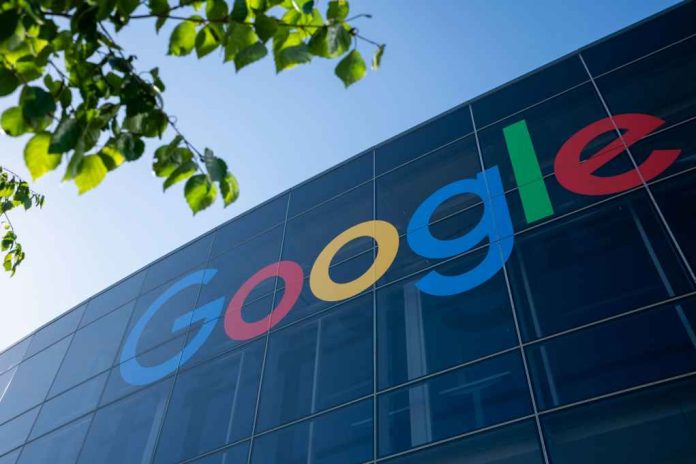
A new policy threatens Second Amendment rights, sparking outrage among patriots.
Story Highlights
- Google to reinstate YouTube accounts banned under Biden administration’s pressure.
- Concerns raised about censorship and freedom of speech.
- Reinstatement reflects a shift in Google’s policy post-Biden era.
- Implications for conservative content creators and constitutional rights.
Google’s Reversal on YouTube Account Bans
Google has announced it will reinstate YouTube accounts banned under pressure from the Biden administration. This decision comes amid concerns about censorship and the erosion of free speech, values that are paramount to many conservatives. The original bans were primarily due to alleged violations of COVID-19 misinformation policies, which sparked significant backlash from those who saw it as an attack on their rights to express dissenting views. This policy change highlights a significant shift since the Trump administration took office.
Under the Biden administration, many conservative content creators faced bans and censorship on platforms like YouTube, often citing the spread of misinformation as the reason. However, critics argued that these measures disproportionately targeted conservative voices, curbing free expression under the guise of public safety. The recent reinstatement announcement by Google indicates a potential recalibration of policies that may align more closely with constitutional protections for free speech, particularly for those espousing conservative viewpoints.
Impact on Free Speech and Conservative Voices
This move by Google is seen as a victory for advocates of free speech and conservative content creators who felt marginalized by the previous administration’s policies. The reinstatement of these accounts is expected to empower individuals who felt their voices were unjustly silenced. This development underscores the ongoing debate about the balance between combating misinformation and protecting free expression, a cornerstone of American democracy.
For many, this decision is not just about restoring accounts but about reaffirming the principles enshrined in the First Amendment. The ability to voice dissent, particularly against government actions, is a fundamental right that many conservatives see as under threat by increasing regulatory oversight and censorship by tech giants. Ensuring these rights are protected against overreach is seen as vital to maintaining the country’s democratic fabric.
Future Implications for Policy and Tech Regulation
The reinstatement of banned YouTube accounts could have broader implications for how tech companies approach content regulation. With the Trump administration’s focus on limited government and individual liberties, there may be increased pressure on tech companies to align their policies with constitutional principles. This shift could lead to a reevaluation of how misinformation is defined and addressed, ensuring that policies do not infringe on free speech rights.
Google to Restore YouTube Accounts Banned Under Pressure From Biden Administration—Downplays Key Part https://t.co/Dx5EQaMtMF
— Carol RN *Miss Rush & the Gipper* 👩⚕️🇺🇸 🇮🇱🦈 (@pasqueflower19) September 23, 2025
Moreover, this development may influence future legislative and regulatory actions, particularly in how digital platforms manage user content. As debates about the role of tech companies in public discourse continue, this case serves as a critical example of the ongoing struggle to balance combating harmful content with preserving free speech. The outcome of these discussions will likely shape the landscape of digital communication and expression in the years to come.


